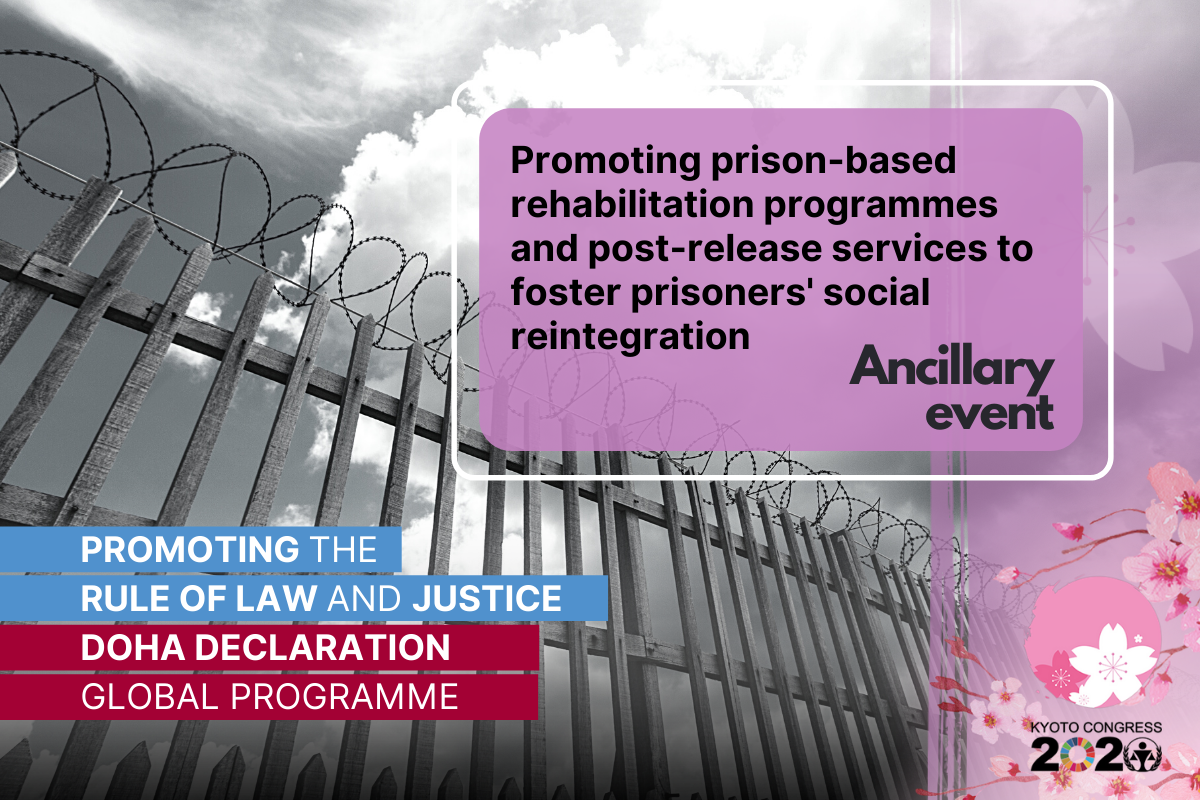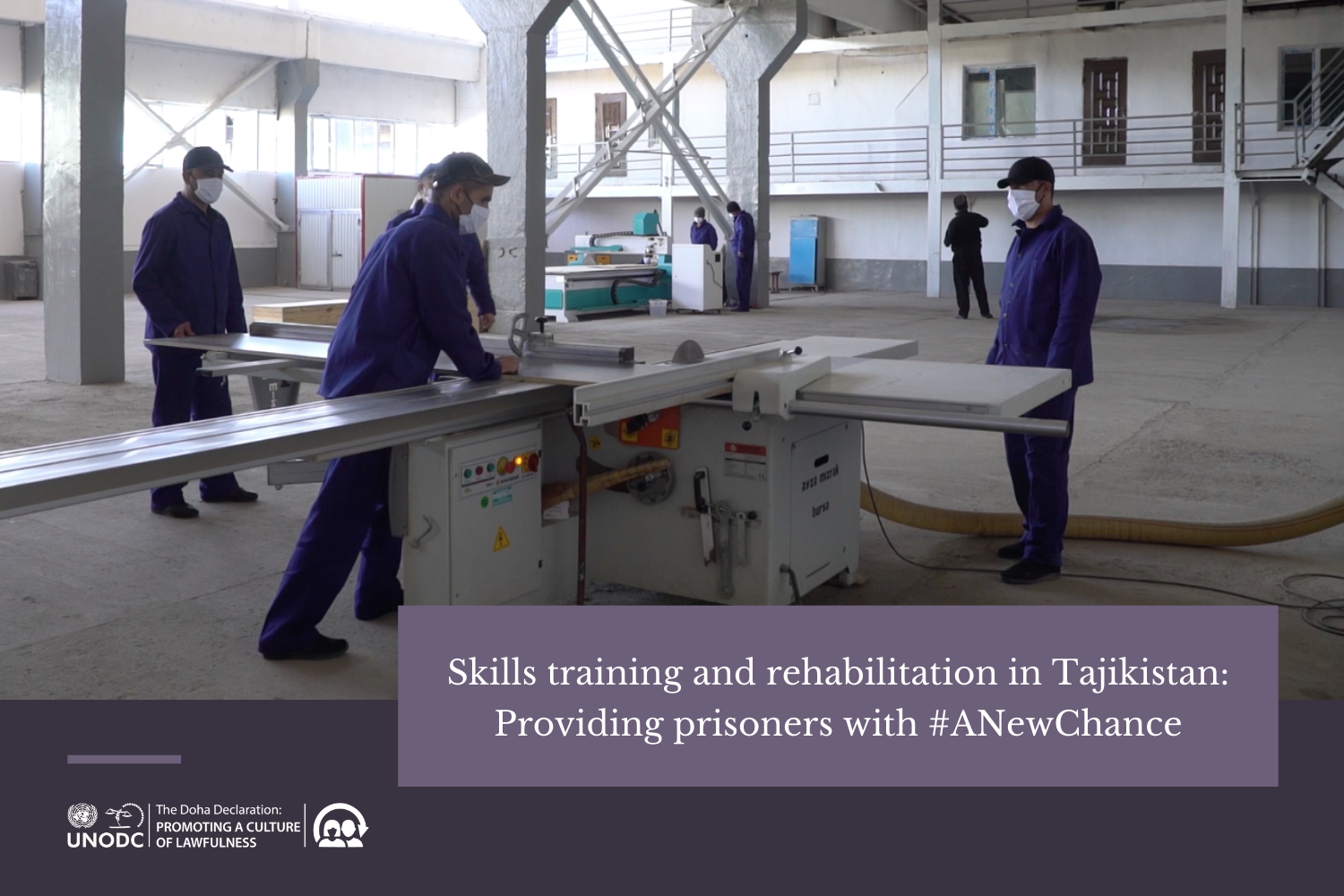Prisoner Rehabilitation
Adopted at the conclusion of the 13th United Nations Congress on Crime Prevention and Criminal Justice, the Doha Declaration highlighted the importance of adopting measures to support the rehabilitation and social reintegration of prisoners into the community.
Within the framework of the Global Programme for the Implementation of the Doha Declaration and its pillar on fair, humane and effective criminal justice systems, UNODC supported Member States in establishing a more rehabilitative approach to prison management.
Indeed, investments into corresponding programmes for prisoners were indicated as one of the best and most cost-effective ways of preventing their re-offending, with significant benefits not only for the individuals concerned, but also for public safety more broadly.
While concluding as part of the Doha Declaration Global Programme at the end of September 2021, UNODC’s important prison reform work, including in the area of prisoner rehabilitation continues as part of the organization’s wider crime prevention and criminal justice activities. More information on this is available here.
Publications
UNODC is providing prison administrations and related stakeholders with technical guidance on how to initiate and/or enhance rehabilitation programmes, in close coordination with other (non-)governmental stakeholders, including civil society and the private sector. All guidance and advisory services are based on international standards and rules.
Projects
UNODC assists Member States in breaking the cycle of re-offending by supporting the implementation of new or enhanced prison-based effective rehabilitation and social reintegration programmes in 10 countries wolrdwide with a focus on access to educational, vocational and work programmes to increase prisoners' skills and employability upon release.
Brands
UNODC is supporting the creation of national brands of prison products aimed at enhancing prisoners' work and products with a view to generate income for prisoners, increase their self-esteem, qualifications, and employability upon release, as well as, more generally, to raise awareness in the general public that prisoners are a continuous part of society.








